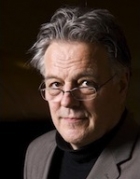Sense-making through science
In another set of studies, Meijers and Rutjens (under review) provided evidence for the functional value of affirming belief in scientific progress. One study, in which belief in progress was manipulated, found that a fake newspaper article describing science as rapidly progressing led to higher perceived order in the world than an article that questioned scientific advances. Moreover, they obtained support for the idea that threatening order perceptions triggers the motivation to engage in action with the intention to restore personal control perceptions – here in the domain of environmentally friendly behavior. More specifically, they found that priming disorder led to an increased intention to engage in environmentally sustainable behaviour, which in turn was shown to increase participants’ sense of personal control.
In sum, these lines of research show that control-threat leads to the motivation to believe in scientific progress, that affirming belief in scientific progress enhances order perceptions, and that disorder perceptions trigger attempts to boost personal control. These findings support CCM’s tenet that personal control and external control are intersubstitutable sources of order, and that threatened order perceptions enhance the motivation to seek compensation in such sources. As an example, threatening the viability of an external source of control (questioning scientific advances) led to decreases in order perceptions, which in turn triggered attempts to boost personal control. Thus, somewhat ironically, questioning scientific progress can reduce personal action inertia, while along similar lines low personal control can motivate people to learn more about scientific advances.
Conclusion
The majority of research on threat compensation in the domain of order and control has focused on religious belief (e.g., Kay et al., 2008; Spilka et al., 1985) and secular worldviews that explicitly mention external agency that provides secondary, or vicarious, control (e.g., Kay et al., 2008; 2010, see also Rothbaum et al., 1982). In the current paper, we aimed to show that compensation for decreased perceptions of control and order can also be realized without control, that is, by merely affirming order in the environment. Moreover, Meijers and Rutjens (under review) provided first evidence for the functional value of affirming external sources of order: order perceptions were actually enhanced after belief in scientific progress was affirmed. Moreover, threatening another source of order (in this case, personal control) triggered a motivated search to perceive order in the environment, as we found in our studies on scientific theory preference (Rutjens et al., in press). In that sense, to return to a point we made earlier in this article, compensation seems to be equivalent to regulation. Maintaining perceptions of the world as orderly, stable, and structured is the primary motive (Kay et al., 2008), and affirming the notion of scientific progress indeed enhanced such perceptions, while threatening personal control instigated a search for such perceptions.
Threat compensation without external control opens up the possibility of venturing beyond the established defensive compensatory strategies, which often involve religious and socio-political endorsement of external systems and intergroup phenomena (Rutjens et al., 2012). Indeed, we have described some initial evidence for the contention that such compensatory order can be found in the realm of science. Certain scientific theories, beliefs, and worldviews –such as stage theories and faith in scientific progress – seem particularly well-suited to imbue our environment with order. In other words, science can help to psychologically make sense of the world. This opens up exciting avenues for future research. For example, given the hydraulic relationship between external sources of control (Kay et al., 2010), it would be fascinating to explore whether this substitutability would also hold for scientific versus religious and socio-political worldviews. Whereas religious and socio-political beliefs might often converge (Kay et al., 2010), science and religion compete for the same explananda (Preston & Epley, 2009) and as such are often argued to be incompatible. Given this historically complex relationship between science and religion (Blancke et al., 2011), it remains to be seen to what extent they will prove to be entirely intersubstitutable sources of order when people are trying to make sense of the world.
References
Blancke, S., De Smedt, J., De Cruz, H., Boudry, M., & Braeckman, J. (2011). The implications of the cognitive sciences for the relation between religion and science education: The case of evolutionary theory. Science & Education, 21, 1167–1184.
Brunner, E. (1972). Eternal Hope. Westport: Greenwood Press (originally published in 1954).
Bury, J. B. (1955). The idea of progress: An inquiry into its origin and growth. New York: Dover Publications (originally published in 1920).



